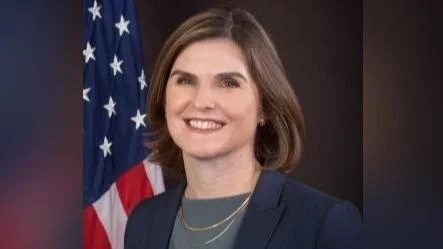Late on September 27, as Tropical Storm Helene left its mark on North Carolina's mountains, Father John Putnam of St. Mark Church in Huntersville initiated a call for supplies. His message to his staff highlighted the urgent need for essentials like diapers, canned goods, and water.
By the following morning, parishioners and locals responded swiftly, contributing to supply collections. The first delivery was made to Statesville airport by afternoon for distribution to remote mountain areas. Supplies were also transported directly to Waynesville by church volunteers.
Dan Ward from the Diocese of Charlotte learned about the devastation firsthand while en route to Mass. He received a call from Margaret Beale, principal of Immaculata School in Hendersonville, who described significant damage and power outages due to record rainfall.
"It wasn’t just what she said — it was how she said it," Ward recalled.
The diocese's response was swift and extensive. Monsignor Patrick Winslow emphasized that everyone who could help should contribute. Bishop Michael T. Martin encouraged support through prayer and practical aid: “For those of you who are suffering so much from this natural disaster...we stand with you.”
Helene had transformed from a Category 4 hurricane into a tropical storm after making landfall in Florida on September 26, leaving over 190 fatalities across six states, including more than 96 in North Carolina alone.
Governor Roy Cooper labeled it “one of the worst storms in modern history for parts of North Carolina.” Federal disaster declarations covered over half of the Diocese of Charlotte’s counties, affecting numerous churches.
Catholic Charities played a pivotal role by establishing relief centers at various churches and schools across affected areas. Claudia Graham led efforts at St. Margaret Mary despite structural damage to the church itself.
Swannanoa became one of three primary supply routes established by Catholic Charities and the diocese. Other stations included Waynesville's St. John the Evangelist Church and Jukebox Junction diner, as well as Immaculata School in Hendersonville.
As reported on October 2, fourteen truckloads of supplies had been delivered to diocesan locations with additional contributions from various parishes such as St. Matthew and St. Gabriel.
Gerry Carter of Catholic Charities stressed their commitment beyond immediate relief: "While we’ll be there handing out water and providing food…our real impact is on the longer-term restoration of lives."
Efforts extended throughout Western North Carolina with parishes like St. James organizing supply drives through Operation Airdrop while others coordinated similar initiatives locally.
Immaculata School remained central to relief operations despite flooding damages canceling classes temporarily. Principal Beale expressed gratitude upon receiving initial supplies: “There isn’t anything that’s happened at our parish or school that can’t be repaired.”
Electricity, clean water, food, medical care, and communication remain scarce post-Helene in Western North Carolina; monetary donations are encouraged via www.ccdoc.org/helenerelief for effective emergency response support.
 Alerts Sign-up
Alerts Sign-up






